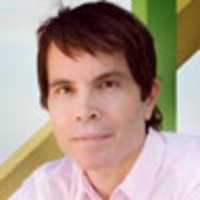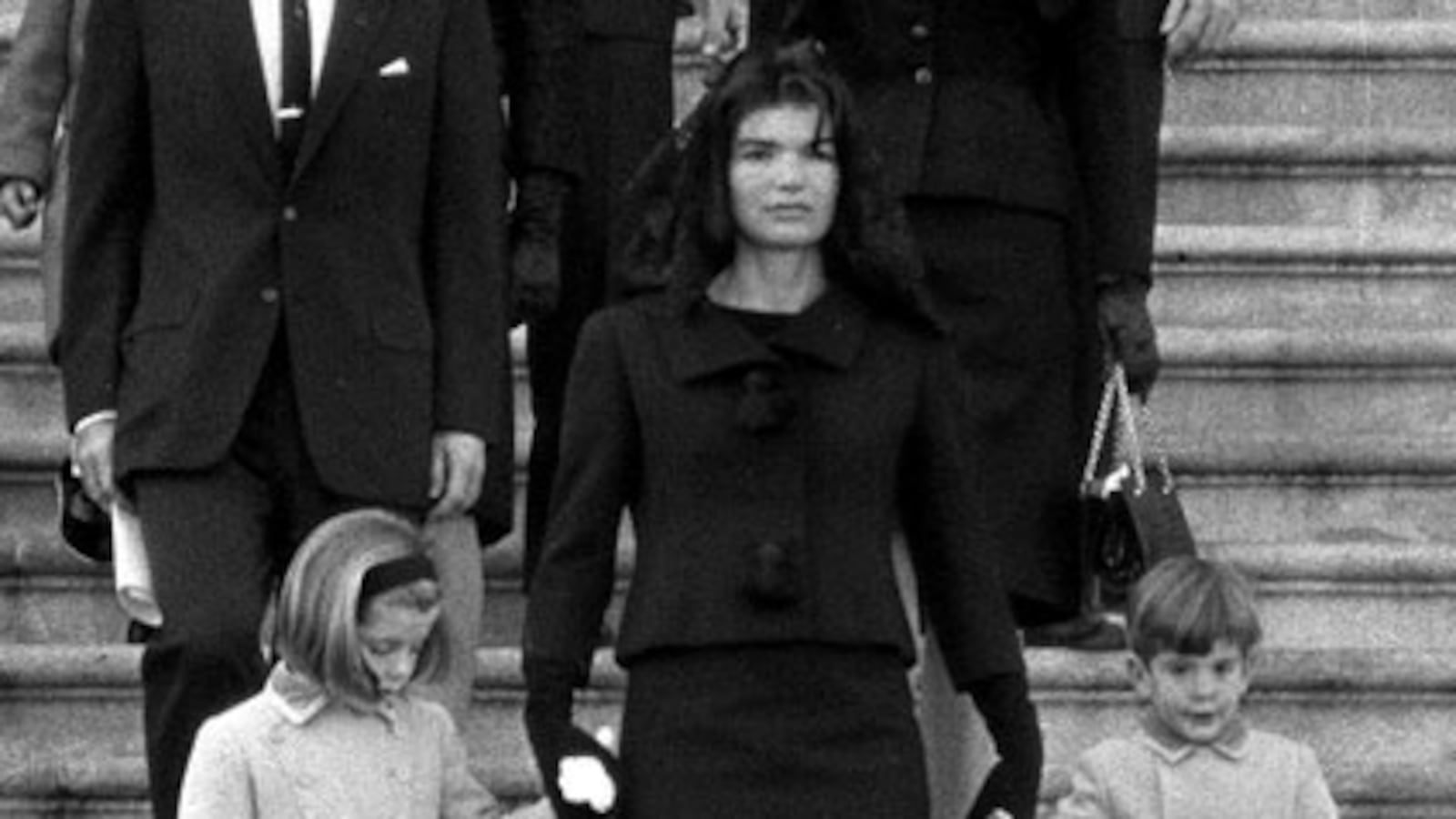Editor's Note: In an earlier version of this article, two sentences were copied from a Roll Call report without attribution. The Daily Beast has attributed the sentences and regrets the error.
Joe Kennedy, the founder of the family’s dynasty, always told his children not to discuss money at the dinner table or in public. "It's just not an important enough matter to talk over," he said. Although they often seemed to live their lives publicly, the Kennedys seemingly would have followed his advice were it not for the financial disclosures required of public officials.
Click Image Below to View Our Gallery of the Kennedys in Mourning

Although no one in the Kennedy clan was willing to discuss the family’s wealth, it’s not surprising that Teddy Kennedy has consistently ranked among the wealthiest members of Congress during his four decades in office. A review by The Daily Beast of his Senate Financial Disclosure Reports for the past decade, real-estate records, and other published reports reveals that the Kennedy fortune is locked into a complex series of family trusts, first started by the patriarch, Joe Kennedy. The labyrinth of trusts, which dole out only a small amount of money annually to the large Kennedy clan, are invested conservatively and run by financial experts whose goal is to maintain the principal. As a result, they were not decimated by the economic tsunami of the past 18 months, and in the case of Teddy’s personal wealth, have dramatically increased over the past four years.
• The Daily Beast's Complete Kennedy Coverage: Tributes, Photos, and VideosDuring 2006, Teddy’s financial-disclosure reports reveal that his net worth more than doubled from any previous filing. In 2006, according to Roll Call, "the senator listed five family trust funds worth $45 million to $150 million. Kennedy estimated that those trusts distributed $500,000 to $5 million in annual income." Prior to 2006, Teddy’s filings listed assets at less than $20 million. (Congressional rules permit members to report assets in broad categories, with a top category of "over $50 million," and don't require reporting of assets not used to produce income. As a result, any estimate of net worth based on them is necessarily approximate and typically underestimates the actual total.)
Since only the Kennedy financial advisers know the details of the mostly blind trusts, it’s impossible to know what made them more than double in value over a single year. What’s clear is that Teddy passed away near the peak of his financial net worth. His 2008 filings—which included information on his finances through December of last year—continued to show assets between $45 million and $150 million.
• Gerald Posner: Teddy's JFK Theory• Gerald Posner: Ted Was No Victim Ted Kennedy’s high-performing trusts were the brainchild of his father, Joe, whose plan for the millions he had earned from scratch was to manage his family's holdings from the grave with a long-term strategy: have their wealth serve as the base for consolidating the power for several generations of Kennedys. Joe set up his first trust fund for Rose and the children then-born in 1926. Another was created in 1936, and yet another in 1949. The last one was the trust through which Kennedy planned to distribute most of his wealth to his 28 grandchildren. At the time of Joe’s death, in 1969, it was estimated he left about $400 million, much of it from real-estate speculation, including some of the land that now comprises Lincoln Center. There never was a highly visible Kennedy family business. (Although the common perception is that the Kennedys made their fortune through liquor distribution, Joe had left that in 1946.)
When Jack became president, he provided the first public insight into the Kennedy holdings, that he was entitled to family trust funds worth about $10 million. He got $500,000 a year from the trusts, which after heavy taxes left him just over $100,000 to spend. On his 45th birthday, a year before his assassination, Jack had received one-half of the principal held in trust for him, with the remaining half kept under the control of Joseph P. Kennedy Enterprises, a New York City-based holding company set up by his deceased father.
Before Jack’s death, the main family trusts were divided six ways: JFK, Bobby, Teddy, Eunice, and Patricia and Jean Kennedy. Jack and Bobby's wills followed Joe’s elaborate trust system, making similar provisions for all their heirs in the far-reaching financial empire.
As a result of such strict guidelines imposed by accountants and attorneys who have managed and supervised the fortune and dispensed profit checks, the heirs sometimes found themselves hard-pressed for ready cash. At his death, Bobby had campaign debts and expenses of more than $3 million, which his estate could not pay. Teddy had to raise the money to pay off those debts and some family members with extra cash kicked in to help. Dated 1953, Bobby's will had named Jack as his co-executor, co-trustee and successor guardian of Bobby's and his wife Ethel's numerous minor children. But with Jack dead, Teddy was next in line. Teddy also took over Bobby’s role as the executor and trustee in Jack’s will.
At 36, and with the burden of all the dreams and promises of Camelot thrown on his shoulders at once, Teddy had difficulty dealing with his own finances, much less being the executor responsible for Jacks and Bobby’s children. Part of the problem with the Kennedys’ byzantine financials is that it is so complicated that Teddy had no overall idea of the family’s precise fortune. Each trust is blind from the others, and heirs to one have no idea of the values of those that provide income to their relatives.
Teddy passed away at near the peak of his financial net worth, with assets between $45 million and $150 million.
In 1998, Teddy ensured the trusts would have enough to survive for decades when he oversaw the sale of the biggest single block in the family fortune, Chicago's huge Merchandise Mart, the world's largest commercial structure. Joe Kennedy had acquired it in 1945 for $12.5 million, and turned what seemed a white elephant into a great money maker. At the time of Joe’s death, the Merchandise Mart alone was worth $75 million. Teddy, under the guise of Joseph P. Kennedy Enterprises, sold the Merchandise Mart to New Jersey's Vornado Realty Trust for $600 million
The sale included $450 million in cash ($75 million each to Teddy, Eunice, Patricia, and Jean, with $37.5 million each to Jack’s heirs, Caroline and John Jr., and $75 million split among Ethel and her 11 children) and $110 million in Vornado partnership units issued to established Kennedy trusts. By receiving a stake in Vornado, the Kennedy heirs deferred a significant portion of the sale's capital-gains tax.
There were occasional rumblings of resentment from some of Bobby’s children over what they considered Teddy’s parsimonious doling out of the trust funds.
Over the years, there were occasional rumblings of resentment from some of Bobby’s children over what they considered Teddy’s parsimonious doling out of the trust funds. Joseph Patrick Kennedy II, the former Massachusetts congressman whose name is now sometimes mentioned as a possible appointee to Teddy’s vacant Senate seat, complained that Teddy’s stinginess was one factor that prevented him from mounting the political campaigns he wanted for higher office, according to a colleague he confided in. In 1999, when he finished his 13 years in Congress, he disclosed he received between $100,001 to $1 million in income from several family trusts. But he also had large debt, according to newspaper reports, with credit card bills of up to $100,000, mostly as a result of political travel.
Today, in the wake of Teddy’s death, no family member or representative returned calls about the reports of early spats over the trust income. Nor is Teddy’s will public yet.
The question for the fourth and fifth generations who now inherit control of the Kennedy trusts is how to maintain the complex arrangements that Joe Kennedy established more than eight decades ago, while also satisfying the demands of a family larger and more diverse in its goals than ever. As Teddy discovered over the decades, being at the helm of the Kennedy fortune is no easy task.
Gerald Posner is The Daily Beast's chief investigative reporter. He's the award-winning author of 10 investigative nonfiction bestsellers, ranging from political assassinations, to Nazi war criminals, to 9/11, to terrorism. His latest book, Miami Babylon: Crime, Wealth and Power—A Dispatch from the Beach , will be published in October. He lives in Miami Beach with his wife, the author Trisha Posner.





